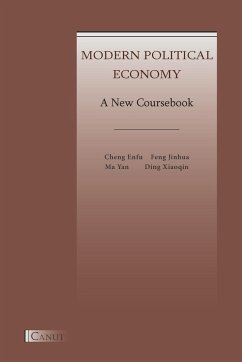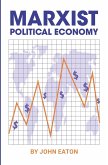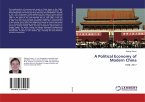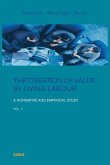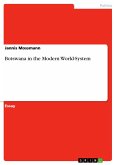People often regard political economy as the "crown" of humanities and social sciences. As a fundamental and backbone subject of the whole economic discipline and humanities and social sciences, political economy has the characteristics of general education in universities and essential knowledge for modern civilized people. This book provides a panoramic view of the Marxist political economy that comprehensively expounds capitalist and socialist market economy. In the light of the system of Marx's Capital and the six-part system of the political economy (which is supposed to consist of the studies respectively of capital, land ownership, wage labor, state, foreign trade and world markets). For the first time in the international academia, the book creates a "five-process system". In addition to the introduction and the conclusion, the first part analyzes the direct process of production, the second part analyzes the process of circulation, the third part analyzes the general process of production, the fourth part analyzes the national economic process, and the fifth part analyzes the international economic process. This book abandons the method of narrating the political economy by dividing it into such two parts as capitalist and socialist ones, or by dividing the cross-linked economic systems, economic performance, and economic development into several parts and then, wherein, arranging specific chapters to respectively narrate about the capitalist and socialist methods. Instead, for the first time, this book chooses to expound with the general-specific category analysis method within every chapter. For example, within the chapter of State Monopoly Economy, state monopoly economy in general is firstly explained, then followed by capitalist state monopoly economy and socialist state monopoly economy specifically; for the part dealing with the market economy, the common features of the market economy are firstly stated, and then respectively its capitalist and socialist characteristics are discussed. Besides applying the approaches of historical materialism and materialist dialectics, this book adopts mathematical method, as well as the method of new institutional economics, the game theory, and input-output analysis. This book vigorously absorbs the latest research achievements of the political economy both at home and abroad about capitalism and socialism. For example, its introduction and analysis of such great deal of new theories and terms such as wealth, electronic currency, enterprise form, labor relations, poverty alleviation, the network economy, capital financing, growth model, input and output, transaction cost, economic cycles, financial instruments, incomplete information, resource conservation-oriented society, recycling economy, humanistic index, administrative monopoly, economic security, comparative advantage trap and community with shared interest, demonstrates its merits in theoretical exploration. Our elaboration of such issues as research object and scope, the nature of economics, fairness and efficiency, class and stratum, functions of state-owned economy, advantages of independent intellectual property, economic globalization, national economic security and its countermeasures, economic system and its evolution, demonstrates the novel and unique research of this book, besides, it highlights the academic and stability. Moreover, this coursebook includes information columns with new or typical materials. Based on the economic situation of China and the world in the 21st century, the compilation of this coursebook embodies the collective wisdom of Chinese scholars. This coursebook is suitable for teachers and students of universities around the world to study relevant courses, as well as for general readers to understand an international view of left-wing political economy and the economic theoretical basis of the "miracle" of China's economic and social development.
Hinweis: Dieser Artikel kann nur an eine deutsche Lieferadresse ausgeliefert werden.
Hinweis: Dieser Artikel kann nur an eine deutsche Lieferadresse ausgeliefert werden.

